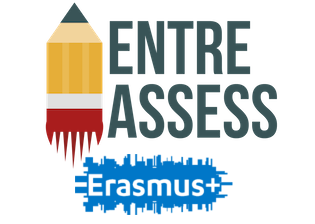
 What it is: Octoskills is an application for mobile and the web for teachers and practitioners who aim to evaluate students’ entrepreneurial skills. It was developed by the Danish Foundation for Entrepreneurship based on the EU-funded ASTEE project (more below).
What it is: Octoskills is an application for mobile and the web for teachers and practitioners who aim to evaluate students’ entrepreneurial skills. It was developed by the Danish Foundation for Entrepreneurship based on the EU-funded ASTEE project (more below).
How it works: The tool is used in primary, secondary and tertiary education to assess students’ self-efficacy and entrepreneurial attitudes and intentions. It focuses on school engagement, educational motivation, and development of relations with teachers and classmates. Students use the app on their mobile phones to fill in surveys and questionnaires that translate into a spider diagram for teachers on their entrepreneurial skills. The diagrams show the before and after of students’ entrepreneurial skills. Teachers use the app to follow students’ development and learn about their teaching with a view towards continuous improvement. The app is led by the teacher who sets up a class survey and shares a unique code with his/her class. Results are shown by class.
Benefits: Octoskills allows for immediate feedback loops on students’ development and comparisons across class and school level as well as internationally by type. The tool stems from a strong research process and is available in multiple languages. At entire school level, Octoskills translates into a further app, OctoDash, for school development. Octoskills broadly focuses on the entrepreneurial mindset and skills, as well exploring the impact on school engagement and career intentions.
Challenges: The current abilities for students are constrained to filling in the surveys and questionnaires and receiving feedback on their strengths and weaknesses. It could be beneficial to receive support ideas for areas of improvement.
Relevance for entrepreneurial teaching: The tool was developed to support measurement of entrepreneurial skills. It has been designed with teacher support in mind, addressing the previous need for easy-to-use tools that generate insight into teaching effects.
Applied assessment methods: The tool uses e-assessment, ipsative assessment, assessment for learning, assessment of learning, and assessment of skills.
Examples from practice: The tool was developed out of the EU-funded ASTEE project (Assessment Tools and Indicators for Entrepreneurship Education) that aimed to define a tool to assess and evaluate the influence of entrepreneurship education. The ASTEE project was co-funded by the European Commission and took place from December 2012 until June 2014.


